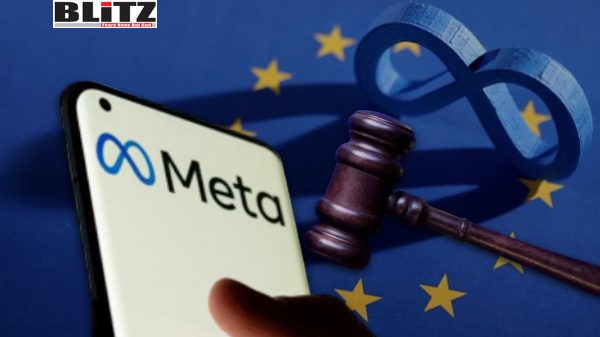Meta faces mounting EU pressure over pay-or-consent model amid $22 million daily fine threat
Meta, the parent company of Facebook and Instagram, is once again at the center of a regulatory storm in Europe. The European Commission is reportedly preparing to impose daily fines of up to $22.5 million on the US tech giant over its controversial “pay-or-consent” model, a subscription-based framework that critics argue violates the spirit and letter of the European Union’s Digital Markets Act (DMA). This escalating dispute underscores the deepening divide between European regulators and American tech firms over the future of digital privacy, user consent, and market fairness.
The controversy stems from a policy Meta introduced across the EU in November 2023. Under this model, users of Facebook and Instagram were given two choices: continue using the platforms for free but consent to the use of their personal data for targeted advertising, or pay a monthly fee to opt out of data tracking and receive an ad-free experience.
At launch, the mobile subscription fee was set at €12.99 per month-over $15 in US dollars. Meta framed this as a legitimate business decision aimed at aligning with European privacy requirements, especially the General Data Protection Regulation (GDPR). Yet, EU regulators took a sharply different view, arguing that the model effectively coerces users into relinquishing their personal data.
The European Commission has maintained that the pay-or-consent framework violates key provisions of the Digital Markets Act, a sweeping law enacted in 2023 to rein in Big Tech and enhance digital competition. The DMA specifically requires designated “gatekeepers” – large tech platforms with dominant market positions – to offer functional alternatives to data-intensive services, ensuring users can enjoy comparable features without being forced into surveillance capitalism.
In April 2024, the European Commission fined Meta €200 million (approximately $234 million), citing non-compliance with the DMA’s data usage restrictions. Meta responded by lowering its subscription price and reducing the scope of data collected. However, regulators deemed these changes inadequate and accused the company of merely offering cosmetic compliance.
Last month, EU officials upped the ante, warning that unless Meta made more meaningful changes, it could face daily penalties of up to 5% of its global turnover. Based on Meta’s 2024 global revenue of $164.5 billion, that figure could reach as high as $22.5 million per day – a staggering potential liability for the tech titan.
Despite the threat, Meta has reportedly refused to make further adjustments to its pay-or-consent model. Citing sources close to the matter, Reuters reported on Friday that the company has adopted a firm stance: it will not offer additional concessions unless compelled by changing circumstances. Meta has neither confirmed nor denied this, but reiterated in earlier statements that it believes its policies are compliant with EU law.
Meta has defended its subscription-based model as a legitimate approach that offers users genuine choice – either consent to advertising or pay to avoid it. The company argues that this method respects users’ autonomy while maintaining the financial viability of its services.
In a previous statement, Meta suggested that EU regulators are singling it out unfairly, while other tech firms continue to profit from similar models. The company also contends that the EU’s demands are overly burdensome and risk stifling innovation in digital markets.
“Subscription models are a widely accepted form of digital monetization,” a Meta spokesperson said earlier this year. “Our approach is compliant with the law, and we continue to engage with regulators in good faith.”
Still, this line of reasoning has found little sympathy in Brussels, where regulators view Meta’s actions as emblematic of a broader pattern of resistance to European digital sovereignty.
The Meta dispute is only the latest skirmish in the EU’s wider campaign against Big Tech dominance. Over the past few years, the European Commission has brought landmark cases against Google, Amazon, Apple, and Microsoft, aiming to curtail monopolistic behavior, enhance user privacy, and empower smaller competitors.
The Digital Markets Act is a central pillar of this regulatory architecture. It grants the European Commission sweeping powers to preemptively regulate large online platforms deemed “gatekeepers.” Companies that fail to comply with DMA requirements risk not only fines but also structural remedies – including potential break-ups or platform restrictions.
EU officials say these measures are essential to restoring balance to the digital economy. “The time of self-regulation by Big Tech is over,” said Margrethe Vestager, the EU’s Executive Vice President for Competition. “Europe is setting the global standard for responsible digital governance.”
Meta’s refusal to make further changes sets the stage for a protracted legal and political confrontation. If the Commission proceeds with the daily fine mechanism – as it appears poised to do – the case may eventually end up before the European Court of Justice.
For Meta, the stakes are high. Beyond the financial implications, continued conflict with EU regulators could erode user trust, hamper product development, and invite further scrutiny from other jurisdictions, including the United States, which has been intensifying its own antitrust oversight.
For the EU, the Meta case represents a litmus test for the effectiveness of the DMA. If regulators fail to enforce compliance from one of the world’s most powerful digital conglomerates, it could undermine the credibility of the entire legislative framework.
The clash between Meta and the European Union is more than a regulatory dispute – it’s a fundamental battle over the rules of the digital age. As Europe seeks to assert control over how data is collected, monetized, and protected, the outcome of this confrontation could shape the future of online privacy and platform accountability not just in Europe, but globally.
Meta may believe it can weather the financial pressure, but the longer it resists meaningful change, the greater the risk of reputational and legal fallout. For now, the EU appears determined to force Big Tech to play by its rules – and it’s willing to make an example out of Meta to prove the point.
Please follow Blitz on Google News Channel
Is a senior journalist.
meta-faces-mounting-eu-pressure-over-pay-or-consent-model-amid-22-million-daily-fine-threat















Leave a Reply